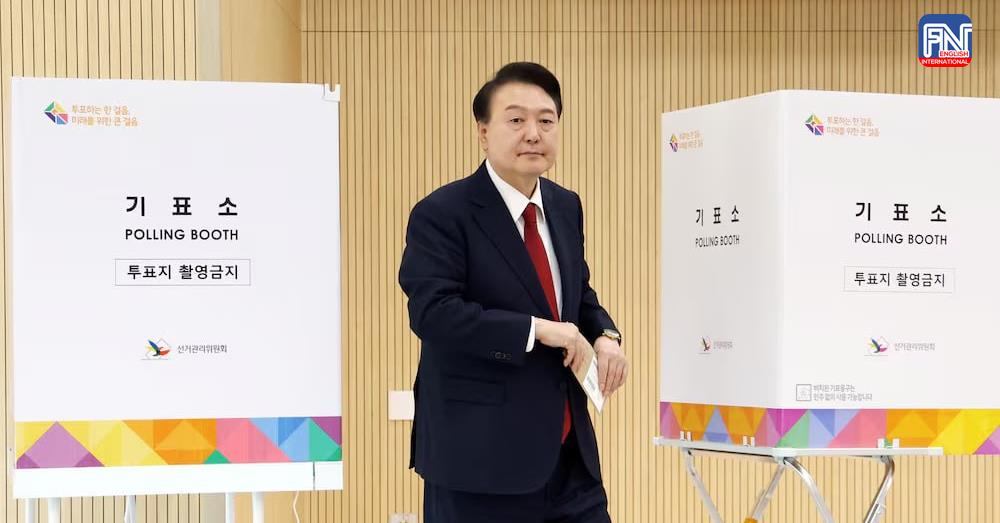SEOUL, Apr. 5 (Reuters) - South Korean President Yoon Suk Yeol cast his ballot as two days of early voting for next week's parliamentary elections kicked off on Friday, in which his ruling party seeks to retake a majority in the opposition-controlled assembly.
More than 3.5 million people, or about 8% of eligible voters, had cast their ballots at some 3,500 polling stations nationwide as of 1 p.m., according to the National Election Commission. It marked the highest turnout for parliamentary elections at this point since the early voting system was adopted in 2013.
Yoon cast his ballot alongside several aides at a station in the southern port city of Busan, where he was expected to attend a business event. He has encouraged people to go to the polls for the April 10 elections, saying it is not only citizens' right but also responsibility.
Stakes are high for Yoon as his People Power Party (PPP) is aiming to win a majority in the single-chamber, 300-seat assembly, though polls show the elections too close to call.
A failure could undercut Yoon's key initiatives to boost the economy, fiscal health and birthrates, as well as to bolster trilateral security cooperation with the United States and Japan.
With a 167 seat majority, the main opposition Democratic Party (DP) had passed dozens of contentious bills, including a nursing law vetoed by Yoon and his party.
The democrats had long been deemed to have an edge in early voting. But the conservative PPP chief, Han Dong-hoon, was keen to drum up support from younger voters, highlighting corruption scandals engulfing opposition leaders which had disillusioned many people and eventually helped Yoon win the 2022 presidential election.
"Through the highest-ever turnout in early voting history, let us show those who ignore the law and the people the great power of good citizens who have lived and obeyed the law," Han said after casting his own vote in a Seoul college town. "Our party doesn't have criminals to protect."
The democrats and other opposition parties have described the elections as "judgment day" to hold Yoon's administration accountable for what they called a "prosecutor dictatorship." Both Yoon and Han previously served as senior prosecutors.
In a joint survey released on Thursday by four major pollsters, 39% of respondents said they would vote for the PPP and 37% the DP.
In another poll published on Thursday by Ipsos, 43% said they planned to vote for the DP, and 39% the PPP.

Photo from Reuters